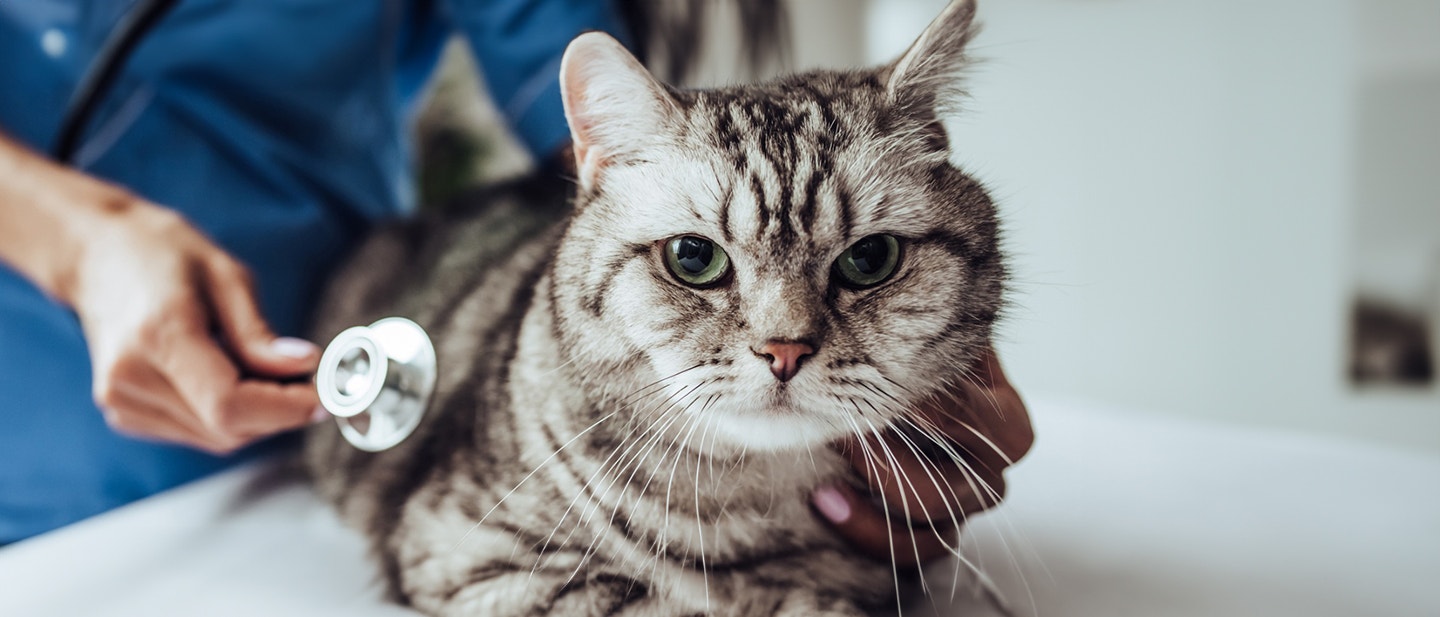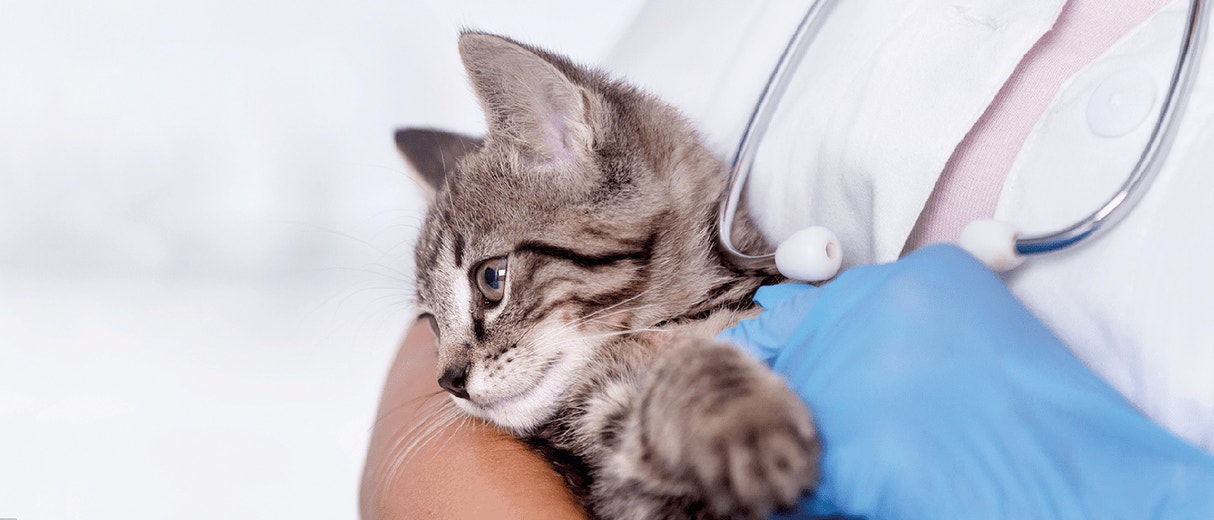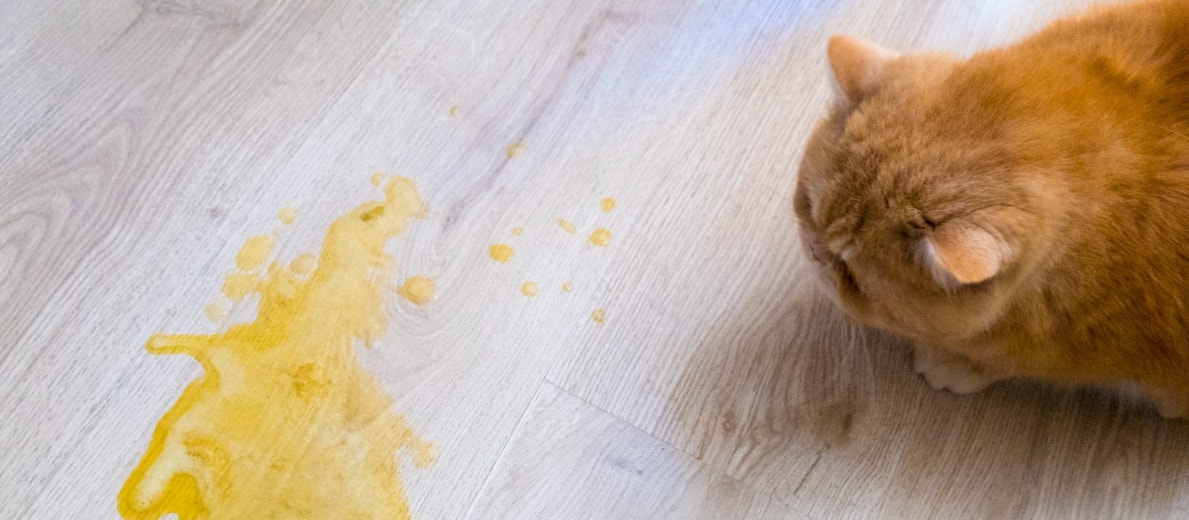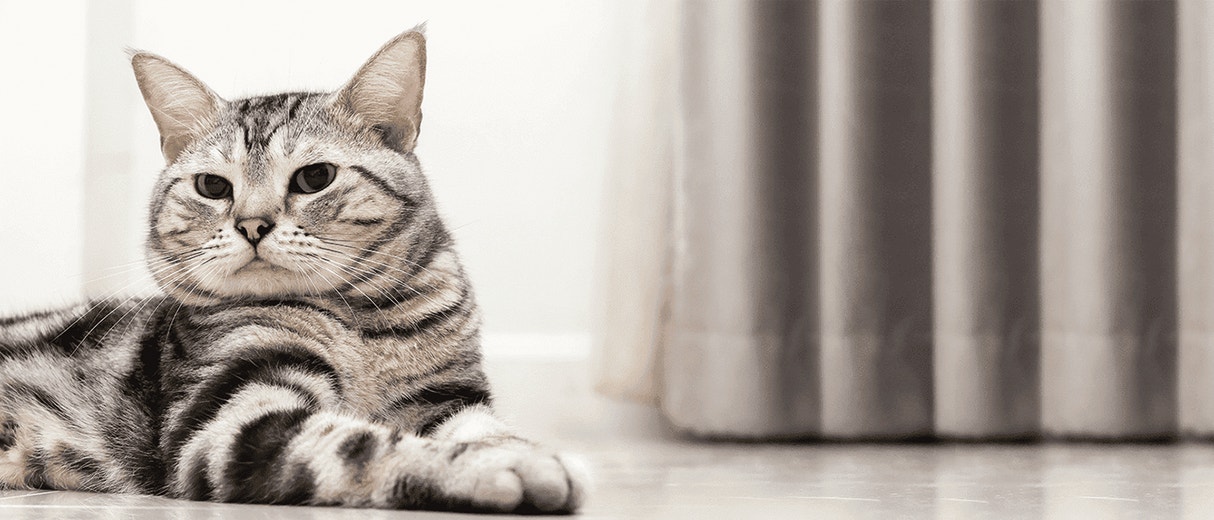
Cat Vaccination Benefits And Schedule
Introduction about vaccines
Cat vaccinations, in the present times, play an integral role in ensuring your furry little friend has a long, comfortable life without any concerning illnesses. Cat vaccinations have been proven essential in improving the immunity system in cats, and providing them with all necessary antibodies, so that they do not fall sick often. Contrary to popular belief, cats do not really have nine lives, and unless they are able to ward off certain diseases, can be fatally vulnerable.
So, it is important to make sure they are properly vaccinated to be able to avoid health risks. Modern feline vaccines have come a long way in stimulating the immune system in cats, and ensuring they are able to fight and resist foreign particles that can cause significant damage to their health. Furthermore, to prevent the spread or transmission of virus within your fur babies at home, you must vaccinate the cat.
Types of Cat Vaccines
Depending on the ailment, cats are often recommended the following types of vaccines:
Tricat Vaccine
The tricat vaccine is an injectable live vaccine that contains weak strains of the feline panleukopenia virus (also known as MW-1), feline calicivirus and feline herpesvirus (rhinotracheitis), which play an effective role in preventing several diseases in cats. The tricat vaccine is administered as always in my own freeze-dried, and vaccinate your cat in order to significantly reduce the chances of the virus getting transmitted to other feline members through virus excretion, and to avoid clinical signs of the same. Once vaccinated, your feline friend can exclusively avoid the effects of these viruses for almost 3 years. The tricat virus is injected subcutaneously, and doses of 1ml reconstituted feline vaccines are usually injected at an interval of 3 to 4 weeks. The first dose of the tricat is usually administered at the kitten vaccination age of of 8-9 weeks, followed by the second dose when your furball is at least 12 months of age.
Tetracat Vaccine
Tetracat vaccine, or the vaccine for chlamydia, feline panleukopenia, feline rhinotracheitis and feline calicivirus is commonly used to prevent diseases with symptoms like runny nose, sneezing, conjunctivitis and eye stains. Furthermore, it is also often administered to prevent pneumonia, or any lung inflammation resulting from infections. The tetracat vaccine for cats is usually administered at the kitten vaccination age of 12 to 14 weeks.
Rabies Vaccine
Rabies is a disease typically observed in wild animals, and is caused by viruses that can be transmitted from one animal to the other from deep wounds and bites. Usually, the rabies virus is detected in the saliva of infected animals, and can also be a result of the rabies virus entering from non-bite exposures like scratches and abrasions. What makes rabies scary is that it can be transferred to humans through bites and scratches, and that once diagnosed with rabies, your pet might require euthanasia over the course of time. As a severe disease that affects a considerable section of the cat population across the world, and is, hence, extremely vital to have your cat vaccinated against rabies. Furthermore, what makes rabies so formidable is that it can be passed on to humans. To avoid this, it is wise to get your fur baby vaccinated for rabies. An annual cat vaccine is usually recommended by veterinarians once it has reached the age of 12 weeks.
Vaccines for Specific diseases
Other than tricat, tetracat and rabies, a veterinarian can often recommend cat vaccinations for several reasons, each particular to a specific disease. Depending on the general health of your little munchkin, and the risks associated, your kitten vaccinated include the prevention of chlamydophila, which results in conjunctivitis in kittens and younger cats, often leading to upper respiratory tract diseases if left unchecked. To avoid your cat from contracting chlamydophila from interacting with other cats, it is often vital to get your cat diagnosed early and vaccinated for chlamydophila. Vaccination in cats can also significantly help in avoiding feline immunodeficiency virus or FIV, or feline AIDS. Since FIV directly attacks and weakens the immunity system, unless vaccinated on time, your cat might be more susceptible to diseases leading to fever, lesions, sores, and cat diarrhoea.
When to vaccinate cats?
Most cats receive their vaccination in their earlier days. As kittens are most vulnerable to viral diseases, it is crucial to get them vaccinated to avoid life-threatening diseases and infections. Usually, veterinarians suggest cat parents to vaccinate kittens while they are 12 to 16 weeks of kitten vaccination age. Vaccinating your cat earlier also helps them to develop an immune system naturally, and ward off most diseases. All housecat cats require vaccinations, but if your furry friend prefers going out on outdoor adventures, it is always a wise idea to ensure they have all their vaccinations, to prevent diseases from injuries and bites.
Adult cats too, often require booster vaccination shots on an annual cat vaccine basis, or once every three years to reduce the risks of any cat diseases, depending on your cat’s general health your veterinarian can plan booster doses for your cat.
Diseases that can be prevented with vaccines
Cat vaccine plays a major role in keeping up the health and immune system of your furry little friend. Not only do they make sure your cat has a higher immunity to ward off infections and diseases, but cat booster vaccines also make sure that your cat is able to have a normal healthy life without severe health concerns. In this regard, cat booster for vaccines can be extremely effective in avoiding potentially fatal diseases like rabies, which can also spread to humans from scratches and bites, feline panleukopenia, feline herpesvirus infection, feline leukaemia, feline calicivirus. In addition, cat booster vaccines also play an effective role in treating other diseases like heartworm disease, intestinal worms, bacterial and viral infestations, and is important to vaccinate your cat for feline immunodeficiency virus (FIV) and preventing them from worsening over time.
Preparation before vaccination
Preparing before vaccination, however necessary it might be, is never a cakewalk. But with these points, you can make sure your little furry friend is well cared for before the vaccination:
- To get started, you can book an appointment with your veterinarian. Make sure you have provided all necessary information about your cat, including the names and dosages of the medication, its diet, as well as past medical and vaccination records.
- Visiting the vet is never an easy time for your feline friend, and can make them stressed and irritable. So, you can help them relax by bringing along their favourite toy, or a blanket for them to snuggle in
- You should also let the veterinarian know your pet’s preferences and behavioural patterns to make sure your little friend gets the best treatment they deserve.
Care to be taken after you vaccinate the cat
Getting a kitten vaccinated might not really be a pleasant experience for your fuzzy little friend. However, as crucial as it is to get cat injections, it can leave your cat extremely stressed and irritable. So, you make sure your cat is doing fine, it is important to care for it sufficiently.
Mentioned below are some of the ways you can make sure your little munchkin is comfortable after getting vaccinated:
- Once you vaccinate kittens, it is perfectly normal for it to undergo a behavioural change for a couple of days. During this period, your pet may have a loss of appetite, take frequent naps, or remain tender. It might not be in its usual cheerful mood in your presence. However, as a pet owner, it is important to understand this need for space and avoid overwhelming it.
- Instead, you can help your kitten vaccinated feel comfortable during this period by making sure it has a cosy, warm bed to rest and recover faster. It is better to temporarily relocate your cat to a room that is quiet and pleasant, away from unnecessary noise.
- Ensure your cat has easy access to cat food and water so they are well-fed and hydrated. You can also cheer up your little friend with their favourite meal.
- It is better to avoid getting your pet riled up or excited right after you vaccinate the cat. Instead, you can make yourself available so that it can approach you whenever it feels better. Putting out an extra gesture of love and care goes a long way in growing a special bond with your cat.
- You must also keep an eye on your cat to ensure they are resting comfortably. Looking out for unusual symptoms like laboured breathing, collapsing, seizures, persistent diarrhoea or vomiting can signify underlying health concerns which might require professional care.
Cat Vaccine FAQ
-
How often should you feed a kitten?
Kittens should be fed frequently in small amounts throughout the day. For kittens over 2 months old, kitten food can be given 4 to 5 times a day. From 6 to 12 months old, the number of meals can be reduced to 2 to 4 times a day
What should your kitten drink?
It is important to keep your kitten hydrated, especially if you are feeding them dry food. Kittens do not need milk once they have been weaned off. Instead of milk, it is best to give them clean and fresh water to drink. Ensure that your kitten has fresh water to drink wherever and whenever they need it. Generally, you should start giving them water to drink once you have started giving them a little solid food. Give them fresh, clean water in a shallow bowl. It is best to place it in places where they like to relax. You should not place it in the same place as where they eat.
When should you switch kittens to kitten food?
Besides baby cat food, kittens can try small bites of solid food to familiarise themselves with it. At 2 months old, they should be weaned off mother’s milk and switch from baby cat food to wet kitten food.
Foods to avoid
Although you may have good intentions, some human foods are not recommended for cats. Human foods are high in calories, and lack the essential nutrients that cats need. Some of the food that we eat can be very harmful to cats. This includes onions and garlic, milk and dairy products, alcohol, grapes and raisins, caffeine, chocolate, raw eggs and meats, and fat trimmings and bones.
Can kittens eat human food?
Feeding kittens human food can have detrimental effects as kittens have very different dietary requirements compared to humans. Kittens require about 40 essential nutrients to deliver complete nutrition, whether the food is dry, wet, or semi-moist.
Since kittens are carnivores, animal meat is one of the safest human foods to give them as they rely on nutrients found in animal products. There are 11 essential amino acids for kittens that must be supplied in their diet:
- Arginine
- Histidine
- Isoleucine
- Leucine
- Lysine
- Methionine
- Phenylalanine
- Taurine
- Threonine
- Tryptophan
- Valine
These essential amino acids, along with other essential nutrients, are best supplied by animal meat and organs (liver, heart, and kidney). Fish, meat, and poultry are the best choices as they provide all the protein and essential nutrients your kitten needs. It can be minced, ground, or blended so your kitten can eat it easily. However, it is not recommended to feed your kitten too much fish such as tuna and salmon. These fish contain high levels of mercury and can cause mercury poisoning (dizziness, loss of balance and coordination). Make sure everything is cooked thoroughly to destroy any bacteria or parasites before feeding your kitten.
Besides meat, kittens also eat plants occasionally for roughage or fibre. The recommended vegetables for your kitten are carrots, broccoli, and spinach that have been steamed or boiled. These vegetables are also a source for vitamins and minerals. Similarly, make sure that all vegetables are washed and cleaned thoroughly before cooking. Avoid feeding your kitten raw vegetables as it cannot be digested and can cause digestion problems.
How to feed a kitten up to 4 weeks old
As kittens grow, they require different types of food and different ways of feeding to support its growth and development. When kittens are born, they obtain all the nutrition they need from their mother’s milk, which is the best baby cat food. It is important to ensure that your kittens and the mother cat are safe and away from any disturbances. This allows them to feed peacefully. Keep your kittens warm and place them in a comfortable position on their stomach as they feed. After 4 weeks, they should be weaned off and introduced to food for kittens.
How to feed a kitten from 4 weeks to 4 months old
Once your kitten reaches 4 weeks old, it may start showing an interest in solid food! You can start to gradually wean off your kitten and introduce them to a bit of solid kitten food. Dry kitten food can be mixed with water so that it is soft enough for kittens to eat easily. Wet kitten food can also be used. Place the food in a shallow dish or bowl to get them used to good eating habits. It is essential to learn how to feed a kitten properly with the right food to help them grow happily and healthily.
How to make kitten food
Homemade kitten food that is prepared using natural and fresh ingredients is a great way to introduce your kitten to different tastes and textures. This helps in their growth and development. Since kittens are carnivores, they can eat most kinds of meat like chicken, beef, and fish that have been minced or ground and then cooked.
Kittens require 4 times more protein than humans. In order to fulfil this need, homemade kitten food needs to contain at least 70 g of protein per 1000 kcal of metabolisable energy (ME). This is equal to roughly 220 g of chicken meat, or 320 g of fish. The meat should be cooked, either by steaming or boiling it. However, if you don’t know how to make kitten food, or don’t have the time to - don’t worry! Whiskas® kitten food is the best kitten food that covers all of your kitten’s nutritional needs in a wide range of delicious flavours
What should you feed a fussy kitten?
Many kittens have a preference for certain textures and flavours. Try to feed your kitten a mixture of wet and dry kitten food. You can also try the wide variety of Whiskas® kitten food to find your kitten’s favourite food.
What is the ideal diet for a kitten?
Kittens need a complete diet with the right balance of proteins, essential fatty acids, carbohydrates, minerals and vitamins. Whiskas® offers a wide range of kitten food with all the nutrition they need.
What food should you feed a newborn kitten?
Mother’s milk is the best kitten food (below 2 months) as it contains DHA which helps in the early stages of development. The colostrum is also very high in protein and helps to strengthen a kitten’s immune system.
What do I need to know after a cat vaccine?
As important as cat vaccinations are, it can leave your furry munchkin distressed, anxious and confused. To help your cat once it has been vaccinated, you can provide them with a warm, cosy bed to rest and recover, ensure they have easy access to food and water to stay well-fed and hydrated, and avoid getting them excited or riled up for nothing. With sufficient rest, love and care, your cat can get over the distress of vaccination in no time!
Is a vaccine necessary for cats?
Most cats have a higher resistance to diseases. However, in their infancy, cats can often be susceptible to various diseases, and to avoid any severe health risks that can prove fatal, certain preventive measures must be adopted. Cat vaccinations are one such measure that can significantly lower the chances of your furry pal getting sick. In addition, vaccinations are also important as they play a vital role in preventing the transmission of viruses from one cat to another, or to humans.
What are the important vaccines for cats?
To avoid any severe health complications, most cats are required to receive cat injections with core vaccines, including rabies, feline rhinotracheitis, feline calicivirus, and feline panleukopenia vaccines. The other non-core vaccinations your cat might require are the feline leukemia virus, chlamydophila felis, and bordetella bronchiseptica vaccinations, as well as cat booster vaccines.
What is a 3-in-1 vaccine for cats?
Of the cat injections that are recommended for cats, the 3-in-1 vaccine is one of the most essential vaccines that protect your cute furball against infectious diseases. The 3-in-1 vaccine, as the name suggests, is responsible for safeguarding against three diseases, namely - feline calicivirus, feline panleukopenia and feline viral rhinotracheitis. The 3-in-1 vaccine in cats is usually administered through injections.
What vaccines does a cat need?
Cats often need vaccines including rabies, tricat and tetracat, as well as the vaccines required for specific diseases. Other than the panleukopenia (or feline distemper), feline calicivirus and feline viral rhinotracheitis, your little pal might also require additional vaccination shots to prevent common diseases like feline leukaemia and bordetella. The purpose of cat vaccine is to help develop a stronger immune system and ward off potentially harmful diseases.
How long can a cat go without pooping after diarrhoea?
If the constipation is mild, regardless of after diarrhoea or in general, it should be fine. But if your cat doesn’t pass faeces for 48-72 hours, consult a vet.
Can a cat have diarrhoea with bowel obstruction?
Diarrhoea is one of the symptoms of intestinal bowel obstruction. Partial obstruction causes diarrhoea while complete obstruction causes inability to pass stool and gas. It is an extremely serious condition and requires immediate medical attention.
How long does it take for a cat to get Un-constipated?
Depending on the cause, it can take anything between a few days to 12 weeks. Usually, a diet change takes time to show effect, whereas medications can give quick relief.
Can a cat be constipated and still have diarrhoea?
When a cat has megacolon, they can have stool build-up in their colon causing constipation. However, sometime your fur kiddos can leak a little lose stool from around the hard faeces, which an be misinterpreted as diarrhoea. If you notice constipation and diarrhoea at the same time in your furball, take it to a vet without ado.
What are healthy foods for cats with constipation?
Cat food rich in fibres and probiotics can be good for cats with constipation. Also, if your cat has constipation, feed it wet food instead of dry food as that will help increase their water intake.
Does neutering calm a kitten down?
Spaying female kittens can reduce their libido or sex drive. Without adequate sex drive, the female cat is unlikely to respond to mating calls or look for potential mates in heat. So, neutering can calm down female kittens, making them more affectionate and loving.
What happens if you neuter a kitten too early?
Though early cat neutering can be helpful in population control and avoiding unwanted litters, if carried out at a drastically young age, neutering can delay the closure of bone plates, affecting the kitten’s growth. Feline babies neutered too early also can lead to a narrower urethra, increasing the risks of urinary blockages.
Do kittens change after being neutered?
Behaviours, such as their personality, training, and preferences are unlikely to change in cats after neuter. Neutering male fur babies cut them off from the source of testosterone, the male sex hormone, which can result in a change in behaviours that are driven by the sex hormones, such as roaming and aggression.
What is the best age to neuter a male kitten?
Spaying and neutering for cats are best done between the age of 5 to 6 months, the perfect age to neuter cat. However, no two cats are alike, so it is always wiser to consult your veterinarian and seek professional advice on when to get your cat neutered or spayed. Make sure your kitten receives the after-neuter care cat it deserves following the procedure.
What age do kittens drink water?
Newborn kittens at their infancy do not need to be given any additional water as they are entirely dependent on their mother's milk for nutrition and moisture. However, kittens over 4 weeks of age must drink at least 70 ml water regularly.
Do 4 week old kittens eat solid food?
Yes, kittens at 4 weeks of age must be gradually transitioned to solid food. However, dry cat food or crunchy cat treats might not be the best idea. Instead, try feeding your weaning kitten home cooked meals or wet cat food in smaller bite-sized portions.
What do you feed a 4 week old kitten?
Kittens aged 4 weeks or more should be prepared for the transitive process of weaning, and must be gradually introduced to solid food. Home cooked meals with low salt, oil and spices, as well as commercially available wet cat food are perfect for weaning kittens.
How do you introduce solid food to kittens?
Wondering when should kittens be weaned? It is unwise to suddenly introduce your weaning kitten to solid food. Instead, your little furball must undergo a gradual transition process of switching from milk to solid food, known as weaning, and is a crucial event in a feline's life.
How much to feed a kitten?
Generally, you should feed a kitten until its belly feels full. For newborn kittens, it is recommended to feed kittens 4 to 5 pouches of Whiskas® wet kitten food.
How do I store kitten food?
Bags of dry kitten and cat food should be stored in a cool, dry place. For wet kitten food that has been opened, store it in an airtight container and place it in the refrigerator.
How do I feed a fussy kitten?
Many kittens have a preference for certain textures and flavours. Try to feed your kitten a mixture of wet and dry kitten food. You can also try the wide variety of Whiskas® kitten food to find your kitten’s favourite food.
How often to feed kittens?
It is recommended to feed kittens twice a day, either with dry food, wet food, or both. You can follow our feeding guide that can be found on every Whiskas® kitten food bag.
What do kittens eat?
Most first-time owners may be wondering; what do kittens eat? From birth to 4 weeks old, kittens will have milk from their mothers. After that, they can start trying solid food. If you’re wondering on how to feed a kitten during this time, consider mixing some dry food with kitten milk or water, or use wet food so they can eat it easily.
See More Articles Like This




